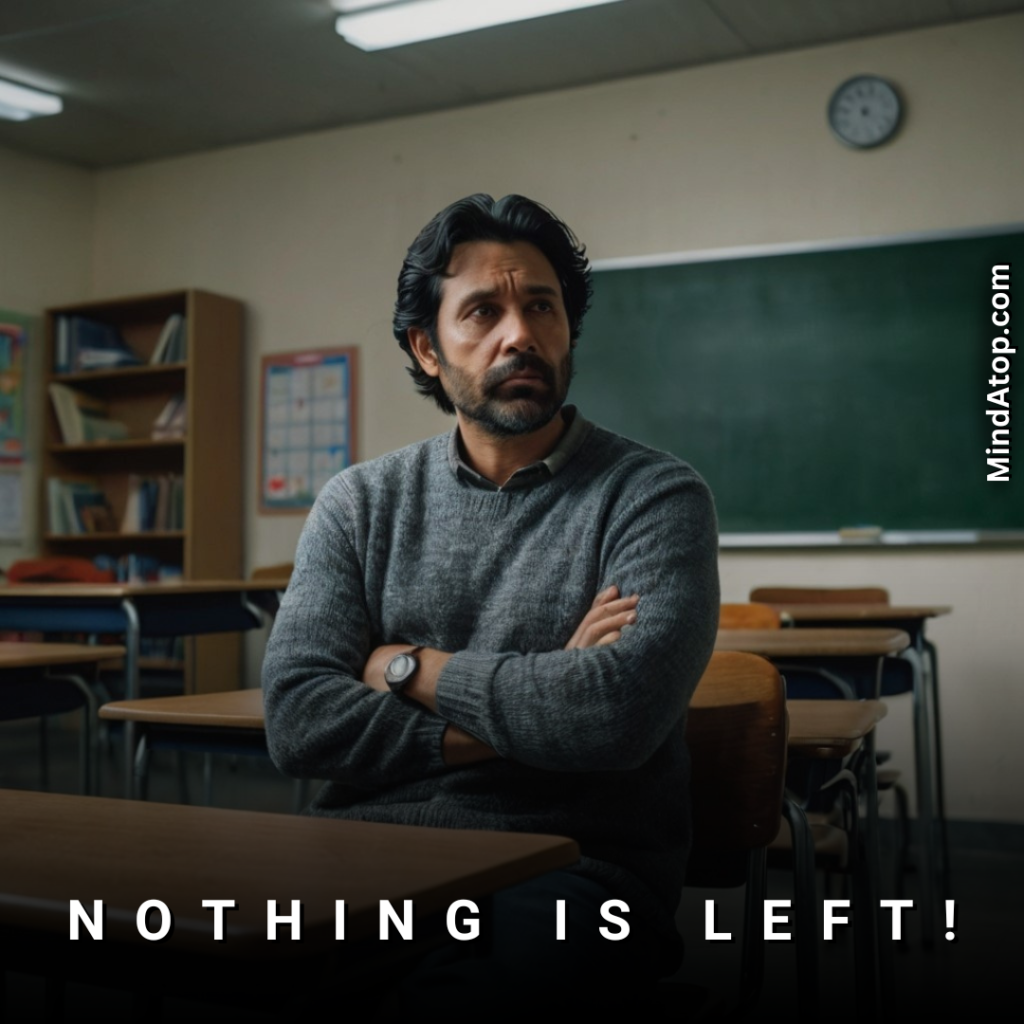Professor Siddharth Joshi was known throughout the university for his brilliance—and his temper. He was the kind of teacher who expected nothing less than perfection from his students. His sharp words and quick temper had become almost legendary in the corridors.
“You’re late again, Sneha!” he snapped at a student who had quietly slipped into the classroom. “This isn’t a tea party. If you can’t respect time, don’t bother coming.”
Sneha’s cheeks flushed as she took her seat. No one dared to speak up. That was the thing with Professor Joshi—you admired him, but you also feared him.
He believed his anger made him powerful. His students feared him, yes, but they also respected him. He thought this tough love pushed them to be better. But what he failed to notice was the way they hesitated to approach him, the nervous whispers that filled the hallways after his classes.
One day, during a project review, Siddharth found himself losing patience again. Arav, one of his brightest students, had submitted a report that didn’t meet his standards.
“This is terrible,” Professor Joshi said, slamming the papers onto the table. “Did you even try, Arav? This is the kind of work I expect from someone who doesn’t care, not you!”
Arav stood frozen, his face pale. He had stayed up all night working on the project, but now, he only felt humiliated. “I… I thought it was good, sir,” he stammered.
“Good?” Siddharth scoffed. “There’s no place for ‘good’ in my class. It needs to be exceptional! Get out of my sight and don’t come back until it’s perfect.”
Arav nodded quickly and left, not meeting anyone’s eyes. The rest of the students sat in silence, afraid to even breathe too loudly.
Over time, fewer and fewer students came to Professor Joshi for guidance. His office hours, once bustling with eager minds, were now empty. Students started choosing other professors to mentor them, ones who wouldn’t lash out at the slightest mistake.
It wasn’t until a meeting with the department head, Professor Verma, that Siddharth realized something was wrong.
“Siddharth, I’ve noticed a decline in student engagement in your classes,” Professor Verma said gently. “They seem to be avoiding you. Is everything alright?”
Siddharth was taken aback. “Avoiding me? That’s absurd. I push them because I know they can do better. They need to learn discipline!”
“I understand that,” Professor Verma replied, “but there’s a difference between discipline and fear. Students aren’t coming to you because they’re scared of your anger, not because they don’t want to learn. You’re driving them away.”
That evening, Siddharth sat in his empty office, his mind racing. He thought about Arav, Sneha, and the others. He had always believed his anger made him strong, gave him authority. But now, it was clear. His temper, the very thing he thought gave him power, had only isolated him. His students weren’t growing under his mentorship—they were shrinking away from him.
He had lost the very thing he thought his anger had given him: the respect and trust of those he was meant to guide. He had lost his power.

